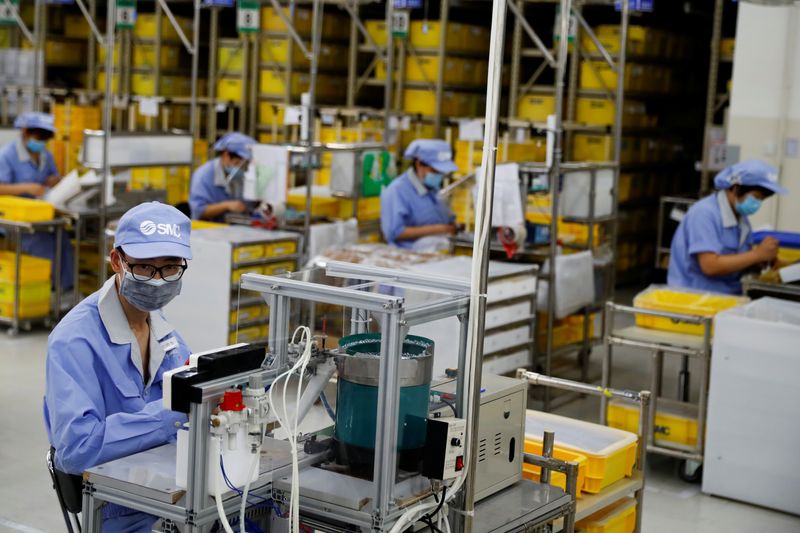BEIJING (Reuters) - China's services activity in September contracted for the first time in four months, as COVID-19 restrictions dented already fragile demand and dimmed business confidence, a private-sector business survey showed on Saturday.
The Caixin services purchasing managers' index (PMI) fell to 49.3 from 55.0 in August as COVID containment measures disrupted supply and demand and restricted national travel.
An official survey published last week also showed services activity slowing, although its reading remained slightly above the 50-point mark that separates growth from contraction on a monthly basis.
China's economy showed signs of improvement in August with faster-than-expected growth in factory output and retail sales, but is being held back by protracted COVID curbs and a worsening property slump.
"The current pandemic situation is still severe and complex, and the negative impact of COVID controls on the economy is still pronounced," said Wang Zhe, senior economist at Caixin Insight Group.
"Policy implementation should focus on promoting employment, granting subsidies, as well as boosting demand and market confidence by sending policy signals," said Wang.
The Caixin survey showed services companies are grappling with sluggish demand, shrinking production and rising costs, although foreign orders are recovering.
The new business sub-index registered the first drop in four months in September, of which new export business expanded for the first time since December 2021.
Input prices have risen every month since June 2020, the sub-index showed, mainly driven by higher raw material and labour costs.
That led services firms to reduce their payrolls at a sharper rate, with a sub-index for employment at 48.5, in contraction territory for the ninth straight months and down from 48.9 in August.
With few signs COVID containment measures will ease in the near terms, the market was much less optimistic.
Many Chinese cities advised residents to avoid unnecessary trips for the public holidays, adding to COVID policies that have kept tens of millions of people under lockdown and exacting a growing economic toll.
Beijing is ramping up efforts to support the economy with a relending facility worth 200 billion yuan ($28.12 billion) on equipment upgrade and relaxation of mortgage rate floors.
Caixin's September composite PMI, which includes both manufacturing and services activity, fell to 48.5 from 53.0 the previous month. Factory activity shrank more sharply in September, pointing to a faltering recovery.

The Caixin PMI is compiled by S&P Global (NYSE:SPGI) from responses to questions sent to purchasing managers in China.
($1 = 7.1135 Chinese yuan)